A reseller will buy goods for resale and make a profit, a retailer purchasing goods from a manufacturer that he will then sell on to his customer for a marked up price. The reselling chain will see a mark up in price from manufacturer to retailer and to the client, each person in the chain making a profit from the resale of the goods. Resellers might simply mark up the goods they resell, or they could add value through combining related products or repackaging.
A reseller mostly wears the shoes of a retailer. On most occasions, a reseller is usually a registered business structure or an individual who buys and sells goods and services to generate revenue per sales transaction.
In the retail chain, this is more like a distribution process where merchants step in to sell goods from wholesalers, directly to consumers. To make significant profit margins on each product sold, resellers have to adjust the prices of commodities.
The selling price for resellers is usually not far off from the manufacturer’s suggested retail price. Since wholesalers also sell products sourced from suppliers, that, of course, makes them resellers by default. Manufacturers can also be considered as resellers since they sell their products to wholesalers who in turn sell them to retailers.
Some resellers create unmatched value addition to their products by repackaging their products, working with fast carrier companies, structuring a realistic pricing plan; all of which lead to increased sales.
In any case, the ultimate goal for each counterpart is to generate a sufficiently good amount of profit for each sale. What catches more attention is the fact that the reselling business model is not only limited to storefronts. There’s a staggering number of online retailers taking a huge share of the pie in various niche products as well.
Resellers: Wholesale Vs Retail – What’s the difference?
The two are game players in the supply chain. The most essential fact is that both are resellers. Suppliers need to make a decisive move on the right model to channel their products to the market.
Typically, there are pertinent factors that a supplier needs to reflect on while choosing wholesalers over retailers or vice versa.
For a medium-sized startup, there’s so much homework to do. So, presumably, and as you may know, a wholesaler is an individual or a business entity that sells products in bulk to retailers.
Selling in large volumes optimizes the goal to clear out the stock within a short span of time. It’s worthy of attention to note that a wholesaler can also be the supplier/manufacturer.
Retailers, on the other hand, resell the products to end consumers. Most retailers setup;
- Departmental stores
- Brick-and-mortar stores
- Online stores
The noticeable difference between wholesalers and retailers is that the latter sells products directly to consumers.
Wholesaling – How it Works
Mostly, wholesalers are the brains behind your product’s brand cognizance. This distribution channel widely cuts across a larger consumer demographic. Keep in mind the fact that they hold a feasible capacity to sell products in bulk.
In so doing, consumers can catch sight of your brand in multiple stores across different locations.
The greater part of wholesaling deals in B2B transactions. As such, they fetch products from manufacturers at slashed prices. Another gratifying attribute about this type of reselling is that it’s not outrightly saturated.
The number of wholesalers is way less than that of retailers in nearly all niche products. In fact, it’s just a fraction. This suggests that the competition here is not as fierce as that of the counterparts’ end.
Not to mention the marketing campaign costs. Wholesalers don’t need to factor in such implications. Retailers, however, need to set a significant amount of budget for advertising. To top it all, they might need to deal with repackaging expenses.
Retailing – How it Works
The retail model grants the reseller room to sell products at higher prices. They get to determine their own profit margins. As a retailer, you get full autonomy over all products you plan to sell. Or, at least, you build from scratch, a gainful value in the catalog of items you wish to push in the market.
For wholesalers, this possibility is unfortunately limited. Contrarily, retailers have a better hands-on glimpse of what consumers really want.
They can draft ads that target the right audience quite concisely. But that, for sure, can’t run persuasively without the right metrics and analytics tools– most precisely, when you want to resell online.
Since retailers don’t have to cling onto any inventory, all they need to invest in is a responsive sales channel. Or better still, they can sign up for an Amazon seller account. As such, they can list products virtually and source it from the wholesaler once a buyer places an order.
This scheme is otherwise dubbed as ‘drop shipping’. And what’s more peculiar about this business model is that the startup costs are cheaper than dirt.
So potential resellers looking to join the retail bandwagon can literary set up their e-commerce stores in less than a day. That’s perhaps one of the biggest perks of being an online reseller.
What turns out to be quite overwhelming is fetching your audience. And that’ll certainly set the reseller a couple of dollars back. Audience targeting, for instance, is one marketing strategy retailers need to work on. To effectively carry it through, retailers need to set a considerable budget.
Why is the Reseller Business Structure booming?
It’s easy to start
While launching a business, it’s of prime significance to set aside some cash for the startup costs.
For newbies, a huge budget might realistically be far from reach. To soften the blow, they can opt to use the reselling model. The number of retailers using this technique is boundless.
Selling on social media platforms, sales channels, and marketplaces are some of the winning options that resellers have. So you know, we’ll give an in-depth run on these online retailing avenues later in this guide.
Zero Inventory
Most drop shippers can very much relate to this.
If you want to sell products online, you don’t necessarily need to hold onto any inventory. You only need to focus on where sell them at. The best part is that marketplaces such as Amazon, eBay, and Etsy allow online retailers to list their products.
The cumbersome part is to source your niche products. Thank heavens, apps such as Oberlo and Spocket do all the homework for you. They integrate with sales channels which include Shopify and WooCommerce.
Once these platforms are in sync, a reseller can import in bulk, all the high selling products. The sales channel auto-updates the stock levels and variants to keep your inventory in order.
Contrastingly, if you plan to resell products at an outlet, it’s pretty certain that you’d need to stock your shelves with products. In that case, you need to have inbound stock levels to make sales.
Less financial commitments
You don’t want money to be a constraint that slows down your plans to launch a business. With a responsive drop shipping strategy in place, reselling products online doesn’t require you to set upfront costs.
Speaking of figures – a retailer needs to pay $29 per month if they want to sell using Shopify’s basic plan.
You’ll notice that this is just a fraction compared to cost implications you’d incur while setting up a physical store. The risk margins for retailers looking to resell products is much less than that of other business models.
A manufacturer, for that matter, would perhaps have to opt for crowdfunding to scale the business.
A reseller can adjust the profit margins
With the reselling option, you don’t need to follow the manufacturer’s suggested retail price religiously.
Both sales channels and online marketplaces allow you to set your own prices. While the Oberlo lets you import products from AliExpress, you can calibrate the pricing margins to grab a better share in the market.
Suppliers sell goods to wholesalers in large quantities. On that account, it’s very much possible to source the goods at discounted prices. While this may be true, wholesalers, on the other hand, sell goods to retailers at prices that have a generous markup potential.
Seamless order fulfillment processing
I can truly say that online reselling is a pretty wise move. As a drop shipper, you can hone the logistics craft using well-founded order fulfillment companies.
Just to illustrate — online retailers can leverage the infrastructure that the Amazon FBA(Fulfillment By Amazon) has. With over 90 million Prime members, the program has advanced shipping solutions that are not only cost-effective but also wide-reaching.
Even if it costs money to get hold of the fulfillment services; warehousing, picking, packing, refunds, returns, and so on, a reseller can push these pertinent costs to the selling price.
Other fulfillment companies such as ShipBob, ShipWire, and ShipMonk, have a wide array of premium services for e-commerce businesses.
Since most of these platforms integrate with carrier companies such as FedEx, DHL, and USPS, resellers can easily deliver all orders across the globe.
Where do resellers source products from?
It’s crystal clear that there exists a chain in the world of reselling. As a retailer, it’s essential to have a firm supply of good quality products.
AliExpress
For starters looking into drop shipping, an adequate channel to start off with is AliExpress. As you are aware, the Chinese based subsidiary of Alibaba is a huge marketplace for consumer products such as; clothing, electronics, accessories, home decor, and much more.
Dropshipping with AliExpress is the ultimate way to keep off the upfront inventory costs. But what might seem daunting is the task of spotting the high selling products.
tTo help you fulfill this superlatively, an online reseller can hang on a platform such as Oberlo. If this sounds strange, then worry no more.
Here’s a plain overview of how the app works:
Oberlo app for resellers
This app isn’t a ‘filled to the bim' e-commerce platform per se. Rather, it’s an extension that syncs with your sales channel. If you’re just starting out on Shopify, this app could help you import products from AliExpress in just a few clicks.
The good thing with using Shopify as your sales channel is that the Oberlo plugin comes as a pre-installed package. So you don’t have to hover around endless installation steps.
It connects you to multiple suppliers and manufacturers who sell reasonably priced products. On its dashboard, you can easily sort the product variants and adjust the prices without any snags.
Resellers can make the most out of the automated order fulfillment services quite easily. While orders may come from different suppliers, Oberlo allows the resellers to add them to a single cart. To exhaustively understand how it entirely works, please have a look at our elementary review on the Oberlo app.
Spocket app for Resellers
If you’re a reseller looking to build a fully loaded dropshipping store, Spocket, just like Oberlo equally, conforms to most of the imminent expectations you may possibly have.
This plugin integrates with both Shopify and WooCommerce in a flash. But the catch is you only get to source products that come from suppliers in the US and the UK. In other instances, you may be charmed to find suppliers from Australia and New Zealand.
From these locations, you’ll get tons of products with suitable profit margin potential. Resellers can flexibly step on discount rates which often gear up at between 30-60%, on average.
Wholesalers can also sign up as an official Spocket supplier in a few easy steps. There are, however, a few prerequisites needed to get on board. Our top to bottom Spocket review unveils all its features, the perks, and downsides as well.
Below is an overview of a few other dropshipping suppliers;
Doba
This marketplace is filled with a rich catalog of products — over 2+ million roughly. All featured items are listed in categories. So it’s easy to find a product to dropship. All you need to do is type a keyword and the most related results will instantaneously show up.
It has a sidebar that sorts products by brand, supplier, prices, quantity, and so forth. Doba gives all its users stunning access to a centralized dashboard that helps you create a virtual inventory.
As such, it’s way easier for resellers to keep track of all orders made from their sales channels or their marketplace's seller account. Here's a descriptive Doba review.
Salehoo
Salehoo is quite popular in the United States, New Zealand; its very own camp base, and the UK. Here, you’ll find a directory of distinct suppliers selling various niche products.
This is a beginner-friendly solution for resellers looking out for dependable contacts. Everything worthwhile always comes at a price.
To get started, you need to pay $67 per year to get unlimited access to the Salehoo supplier directory. Please read Salehoo’s full review.
Wholesale2B
With over 100 million dropship products to choose from, this seems like a viable option to try out.
For resellers using BigCommerce as their sales channel, importing products from Wholesale2B is not burdensome. The listing tool allows you to bulk-import products to your BigCommerce account in the same manner as Obelro or Spocket.
It also integrates with Shopify, Amazon, and eBay. The better part is that it automates the order fulfillment process. So you don’t need to source for 3rd party services to deliver products to customers.
Other common suppliers for resellers are:
- Dropship Direct
- Dropshipper.com
- Wholesale Central
- MegaGoods
- InventorySource
Where do they sell their products?
Here comes the most interesting part.
Online reselling, to be particular, has become easier than ever before. So far, there are steams of options to look at. Let’s just go straight to those that show some level of light on e-commerce oriented business models.
So, here’s a 101 short guide for first-time entrepreneurs:
Marketplaces
Amazon
It needs no explanation that Amazon stands high as a budding platform for resellers. All you need is an official seller account. While it’ll cost you a couple of bucks to start listing your products, high revenue prospects are oftentimes within reach.
You can choose to sell high-competition products at low prices. With this approach, it’s safe to lay down a market-led inventory strategy. Real-time data allows the reseller to spot the high-selling products. Amazon poses no difficulty; just to put it in plain language.
Dropshipping with Amazon doesn’t need you to have pro-like skills. Literary, a Shopify store owner can use the sales channel to sell on amazon. Shopify syncs with the retail giant with no apparent gaps, I must point out.
eBay
You can steadily grow your reselling business on eBay in just a few calculated steps. You need to hunt for the best selling products and work with dependable wholesalers.
It doesn’t matter whether your cash flow is tossed. As a reseller, you need little or no capital input. You can kick off your reselling business without any inventory.
Sales channels
Shopify
The number of online stores selling on Shopify literary spells out its dominance in the in intense e-commerce competition.
So why Shopify?
To begin with, the setup process is uncomplicated. Resellers can choose a plan that suits their business’s blueprint, bulk import products, sync with social selling platforms, connect to handy CRM tools for Shopify, and work with plugins that are significantly productive.
This Shopify review guides potential resellers on how to get started with the platform.
WooCommerce
The WordPress extension is clearly a tool with an e-commerce functionality that can’t be sneezed at.
There’s less coding to consider. The fact is, you can have control over your e-commerce website with just a few flexible design options. Since it integrates with WordPress, you can rest assured that your online business’s content management system will absolutely be second to none.
The plans on WooCommerce accommodate any scalability test quite well. We have an extensive WooCommerce review that touches on all its features, it’s ease of use, pricing, and much more.
BigCommerce
BigCommerce is unquestionably a wall-to-wall alternative to get a load of.
Over 95,000 e-commerce websites currently sit on the BigCommerce software. There are tons of themes that pair up with any niche that a reseller wants to dive in.
BigCommerce gives you the ultimate flexibility to customize your online store to your liking. Most of all, you can even adjust the checkout options to lessen the cart abandonment issues.
Don’t miss to check out the full BigCommerce review.
How resellers market their products
It takes more than merely listing products on an ecommerce website to fetch the right customer-base.
Resellers need to optimize their online stores' revenue projections via social selling mediums. A sales channel such as Shopify allows users to monitor shoppable posts on Instagram. Parallel to this marketing channel is Facebook where you can use your page to set up a shop section.
Shopify store owners have an option to add Facebook as one of their sales channels. Resellers can better still opt to set a budget for ads.
At all times, it’s of prime interest to monitor if your ads are yielding the needed results. Google Analytics, would help you see at a glance, the necessary data via a dashboard. This way, it’s easy to point out which online campaigns churn out the highest traffic and best conversions.
Email marketing and affiliate programs are also effective ways that resellers use to promote their products. There are tools to help you automate all actions from these two ends and ultimately convert better.
Search engine optimization might eat up much of your time but can potentially help a reseller build an immense amount of website traffic. All of these, in a nutshell, are just some of the recognized options that resellers use to market their products.
Final pointers
Reselling seems to take center stage, mainly in the ecommerce retail space. B2C models now have progenitive perks due to the rise of sales channels and ease of getting started on popular marketplaces such as Amazon and eBay.
A reseller needs little capital to get started; not to mention the cut-rate plans on sales channels. Since they get to source products from wholesalers at lower prices, marking them up is pretty much attainable.
This guide orients any individual looking to quicken the process of launching a reselling business in a productive manner. Just drop a comment below if anything sounds puzzling. I’ll be quick to give prompt feedback.

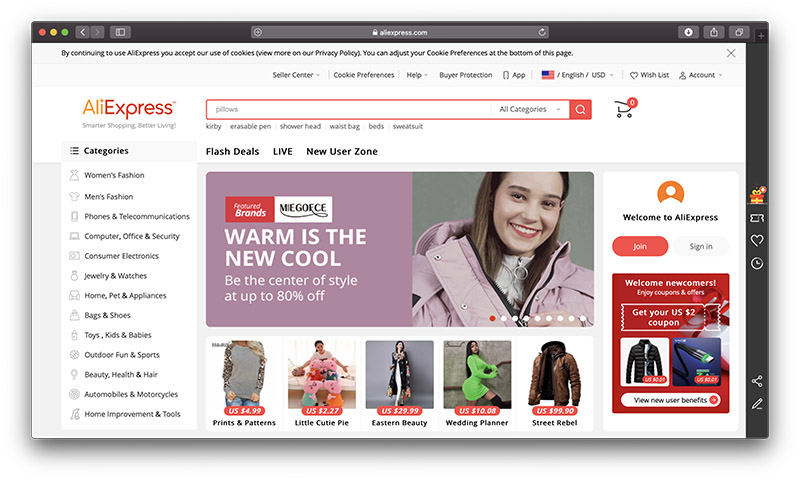
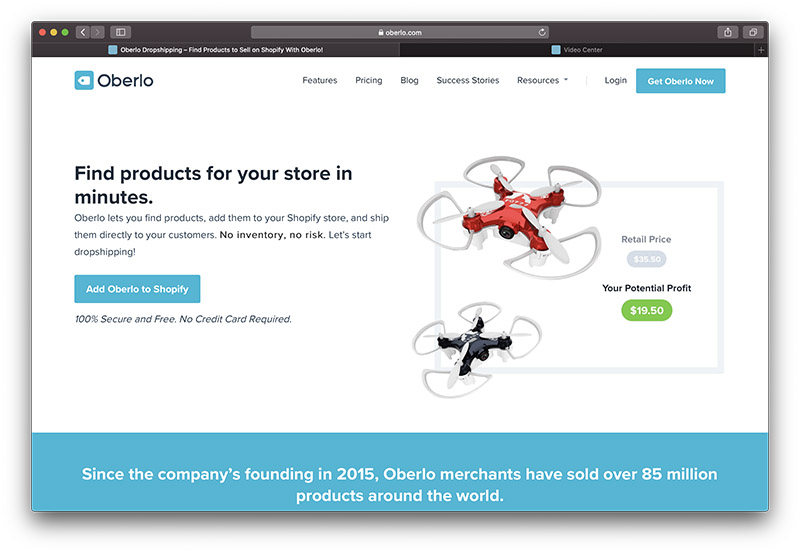

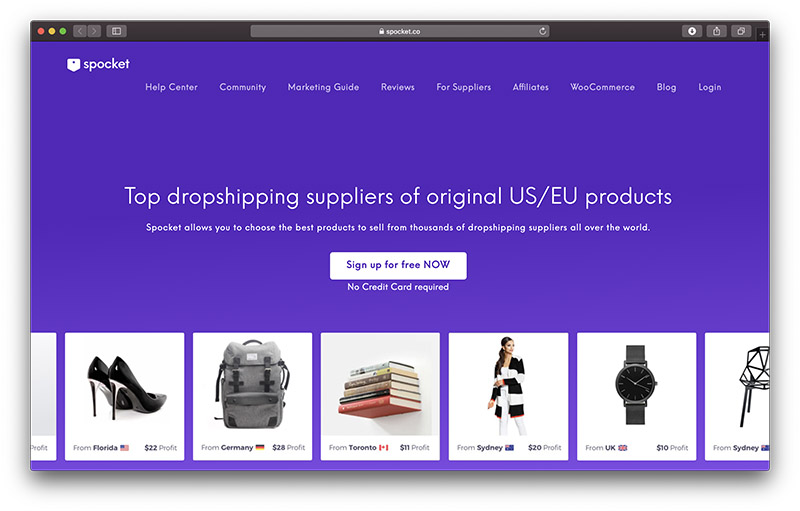
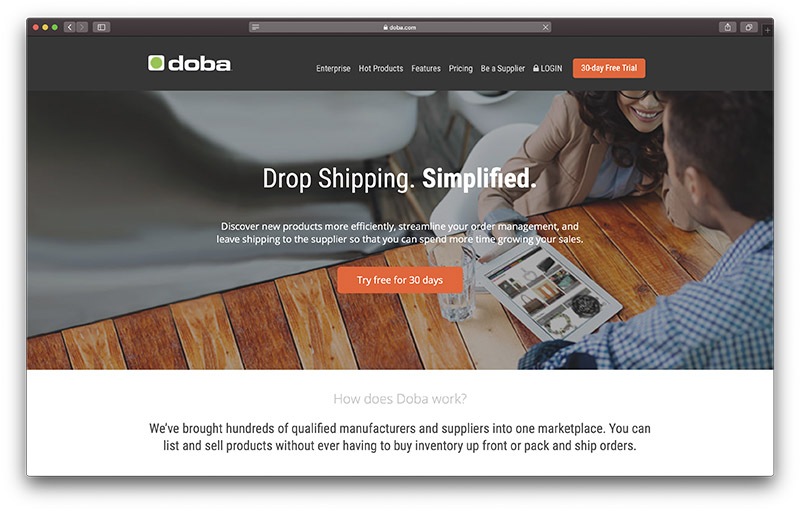
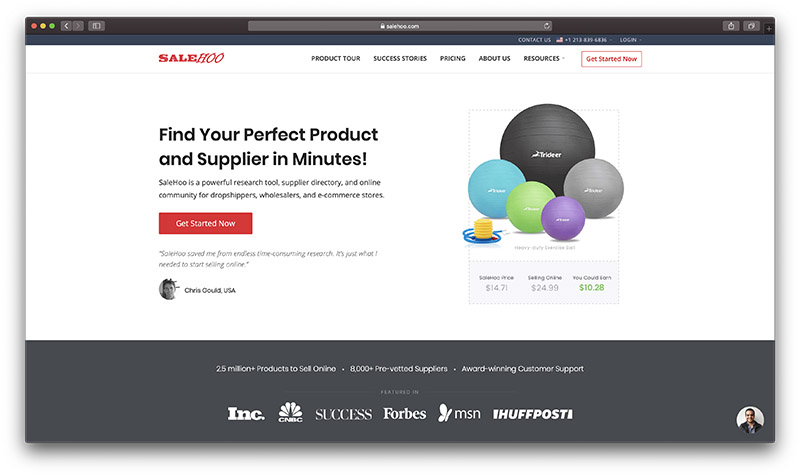
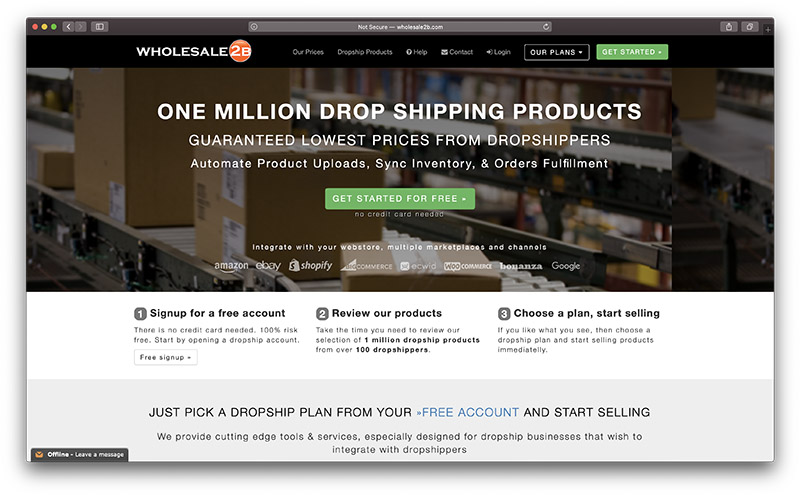
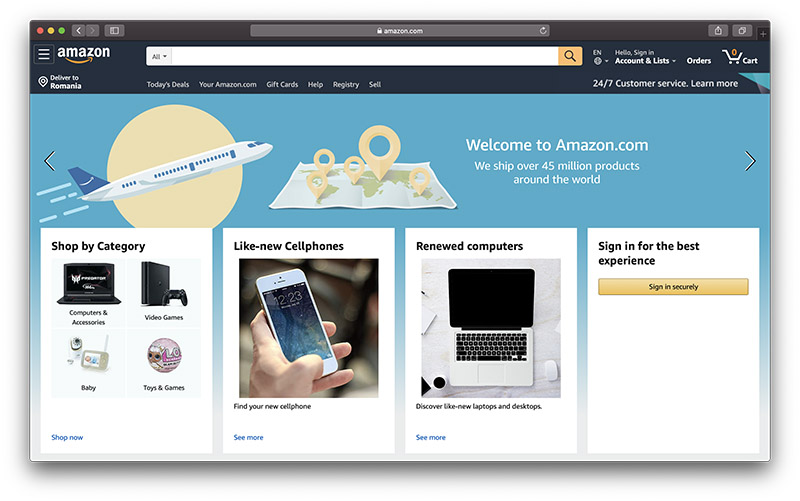
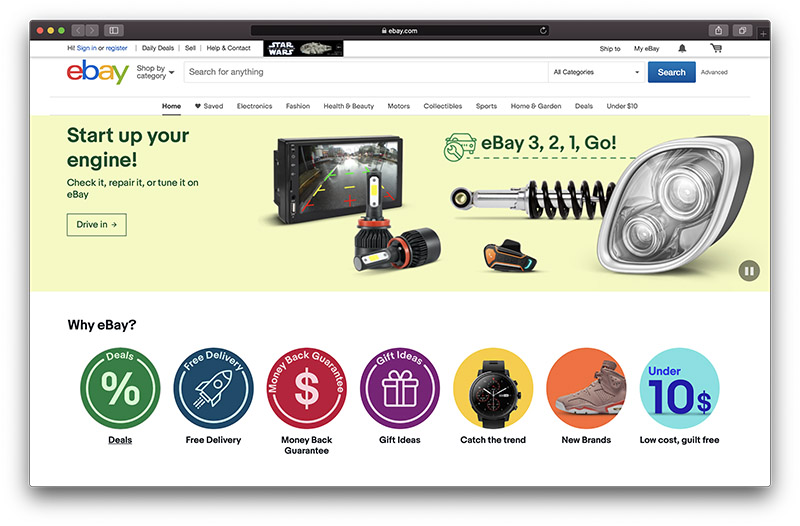
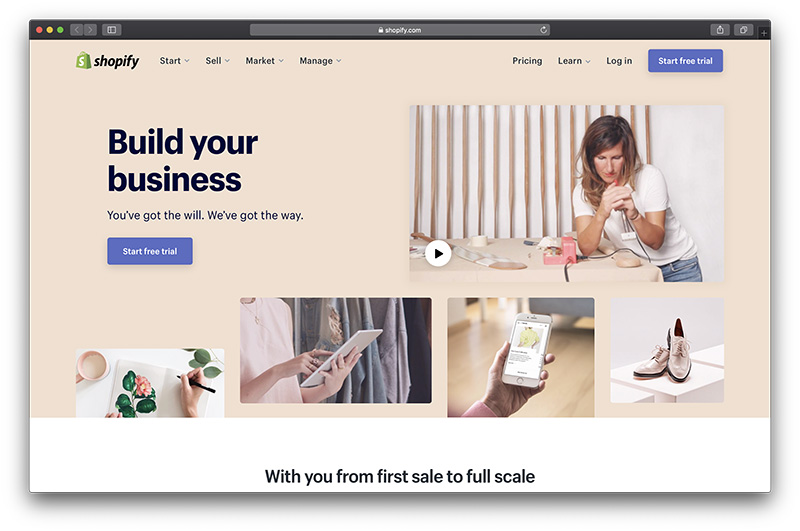
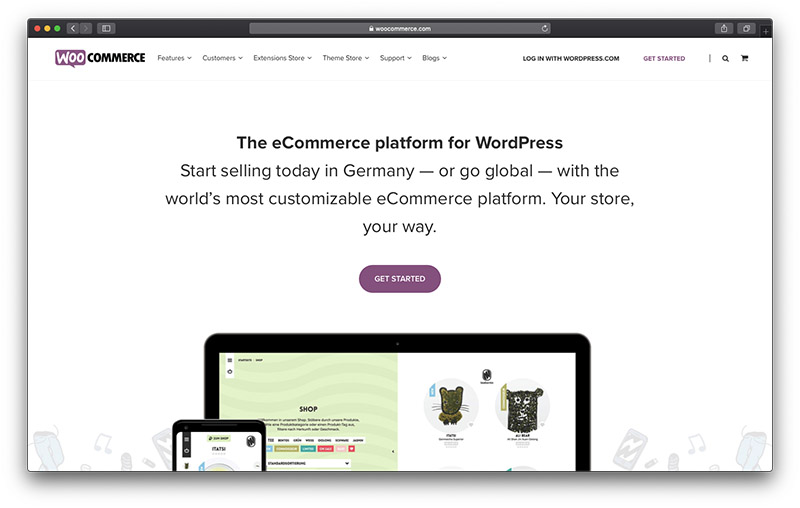
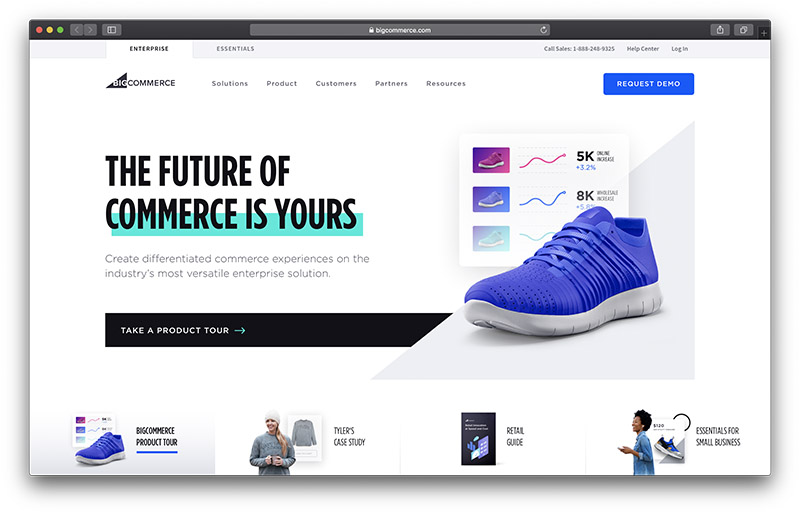


Tell us some things about taxation.
If we are playing the role of middle men do we need a tax id or a creation of LLC?
At least for the beginning?
Hello Kostas, I’m not sure I understand what you mean by middle men…